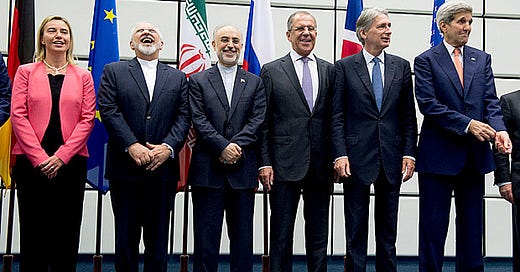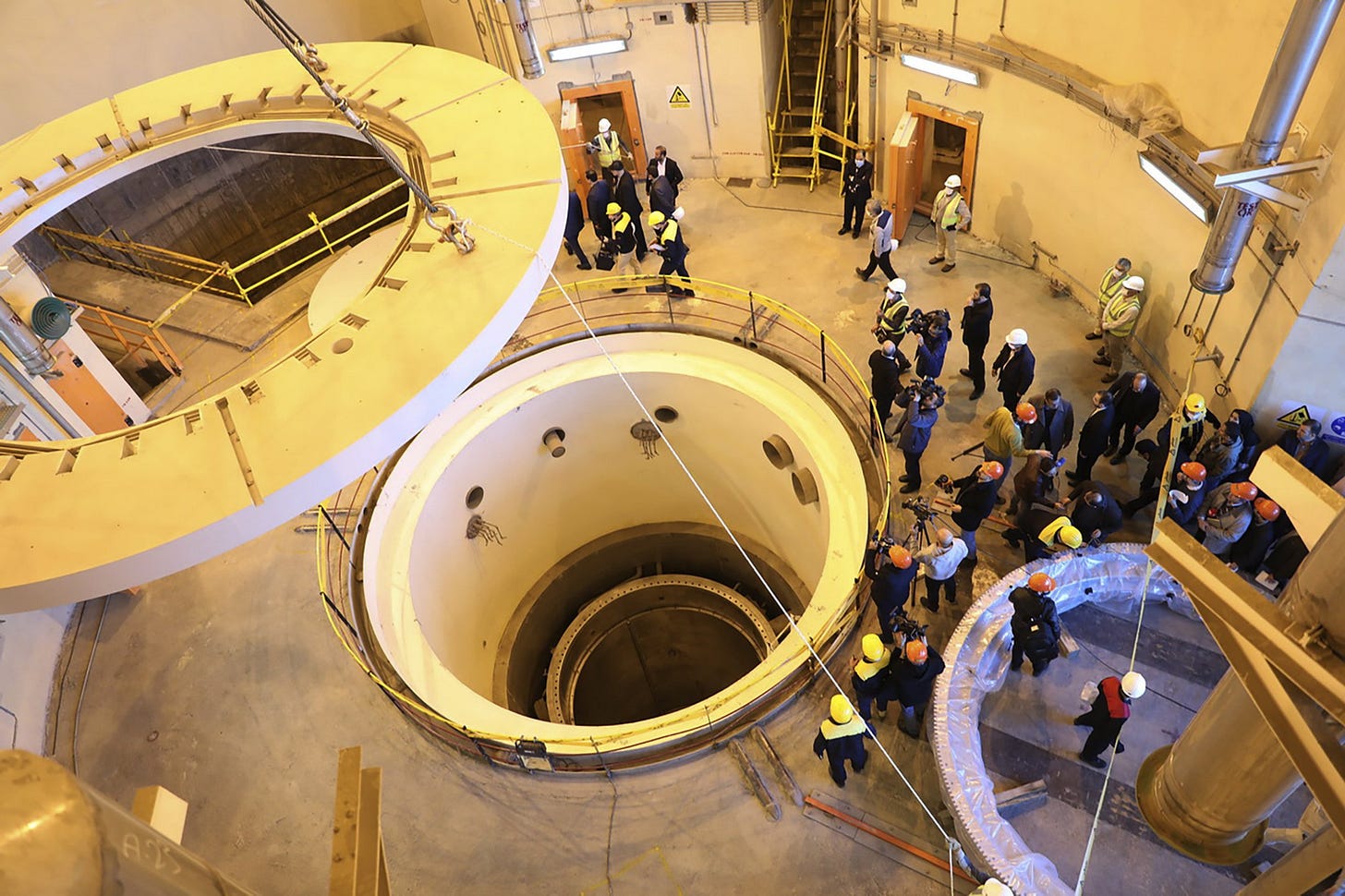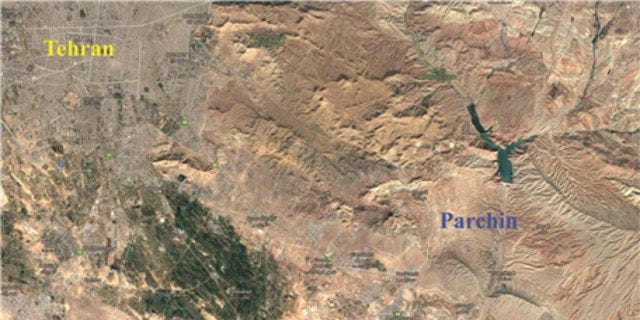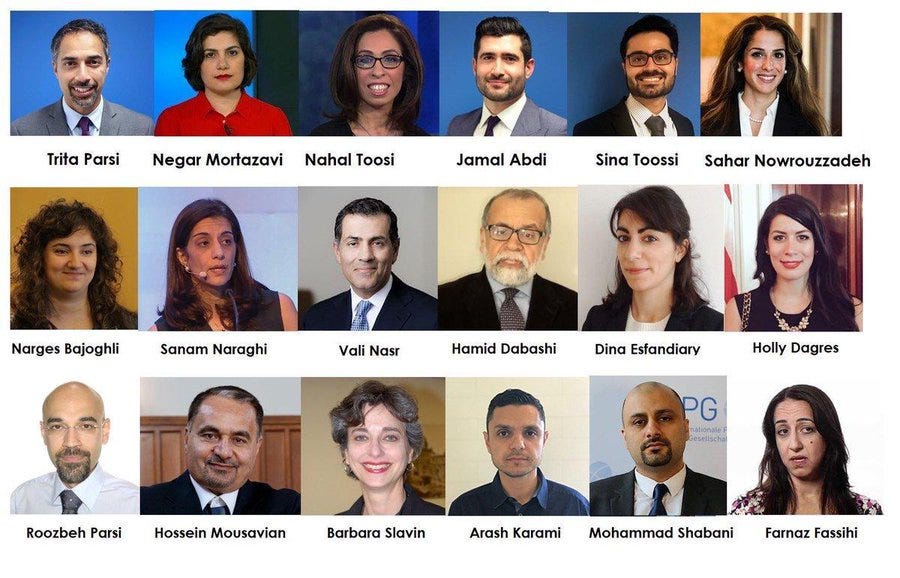Iran has been violating Obama's 2015 nuclear deal since day one
Obama's unbridled appeasement of Tehran's ayatollahs allowed the regime to obtain a highly flawed nuclear deal and begin violating it from the get go.
The Biden administration seeks to reenter Obama’s highly flawed 2015 Iran nuclear deal. It is worth noting, however, that Iran’s regime has been violating the 2015 agreement from day one and even prior to former U.S. President Donald Trump nixing. For example, Iran did not dismantle the core of the plutonium reactor at Arak, as required by the deal (JCPOA), and senior regime officials have boasted about this on state TV.
Thus, any policy focusing on reentering such a failed deal is a lost cause.
February 4, 2019—Newsmax
Iran Is Obviously Violating the JCPOA
"For one thing, we already know of many Iranian violations (or likely violations) of the Joint Comprehensive Plan Of Action (JCPOA). The Iranians have produced excess heavy water, illegally, at least twice, which they sold for profit. The Iranians have exceeded the limits on advanced centrifuge research and development, by assembling more than a half dozen IR-8 rotor assemblies and operating 13-15 IR-6 centrifuges in a single cascade. (Luckily, their efforts have largely been a failure.) Iran is likely violating Section T of the deal, which explicitly bans Iran from “activities which could contribute to the development of a nuclear explosive device,” such as using computer models that simulate a nuclear bomb, or designing multi-point, explosive detonation systems. German intelligence has reported that in 2015 and 2016, when the U.S. was still part of the JCPOA, Iran attempted more than one hundred times to obtain illicit nuclear technology, which may be in violation of the deal. In 2015, Tehran violated the deal by refusing to fully cooperate with the International Atomic Energy Agency (IAEA) investigating the Possible Military Dimensions of the nuclear program. (In 2018, Israel exposed much of what the Iranians had been hiding from the IAEA.)”
December 8, 2015—Institute for Science and International Security
Tehran violated the deal by refusing to fully cooperate with the IAEA investigating the Possible Military Dimensions of the nuclear program.
July 7, 2016—Fox News
Germany’s domestic intelligence agency’s annual report stated that Iran pursued a “clandestine” path toward obtaining illicit nuclear technology and equipment from German companies “at what is, even by international standards, a quantitatively high level.”
The German report also stated “it is safe to expect that Iran will continue its intensive procurement activities in Germany using clandestine methods to achieve its objectives.”
June 6, 2017—Reuters
Iran told the U.N. nuclear watchdog it would ship 20 tons of heavy water abroad to avoid breaching a limit on its stock of that substance under the JCPOA, officials said.
Heavy water is a moderator used in a type of reactor that can produce plutonium, which can be used to produce nuclear weapons. Under the JCPOA, Tehran’s stock of heavy water is restricted to 130 tons.
Up to this date, Iran had already breached that limit twice since the deal imposed restrictions on its nuclear activities in January of 2016, when sanctions against Tehran were also lifted under the agreement.
Iran's refusal to allow international inspections of its military sites was and remains a JCPOA violation. The relevant language of the JCPOA states (see Annex I, Q Access, pg. 23).
Requests for access pursuant to provisions of this JCPOA will be made in good faith, with due observance of the sovereign rights of Iran, and kept to the minimum necessary to effectively implement the verification responsibilities under this JCPOA. In line with normal international safeguards practice, such requests will not be aimed at interfering with Iranian military or other national security activities, but will be exclusively for resolving concerns regarding fulfilment of the JCPOA commitments and Iran's other non-proliferation and safeguards obligations. The following procedures are for the purpose of JCPOA implementation between the E3/EU+3 and Iran and are without prejudice to the safeguards agreement and the Additional Protocol thereto. In implementing this procedure as well as other transparency measures, the IAEA will be requested to take every precaution to protect commercial, technological and industrial secrets as well as other confidential information coming to its knowledge.
September 20, 2017—Foundation for Defense of Democracies
The Iranians exceeded limits set on advanced centrifuge research and development, by assembling more than a half dozen IR-8 rotor assemblies and operating 13-15 IR-6 centrifuges in a single cascade, according to the FDD report.
October 1, 2017—Fox News
Iran is likely violating Section T, banning “activities which could contribute to the development of a nuclear explosive device,” e.g. using computer models simulating a nuclear bomb, or designing multi-point, explosive detonation systems.
October 9, 2017—Fox News
German intelligence has reported that in 2015 and 2016, when the U.S. was still part of the JCPOA, Iran attempted more than one hundred times to obtain illicit nuclear technology, which may be in violation of the deal.
October 10, 2017—Fox News
Iranian opposition NCRI released in 2017 critical information showing that Iran’s research and development activities, as well as nuclear activities, were continuing at the Parchin military site, located southwest of the Iranian capital Tehran and out of reach of IAEA inspectors.
Finally, Iran apologists/lobbyists constantly claimed for four years that Trump sought war with Iran. Now they’re pushing the narrative that Biden should immediately jump into the nuclear deal with Tehran and provide concessions. They were wrong then and they’re wrong now.









